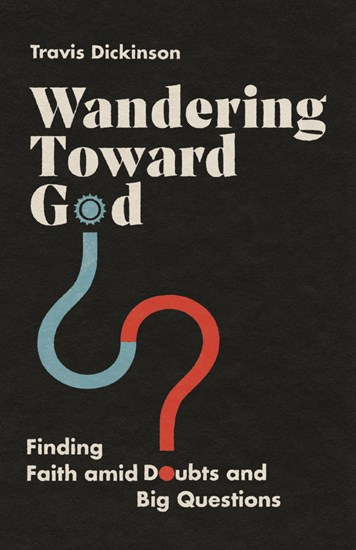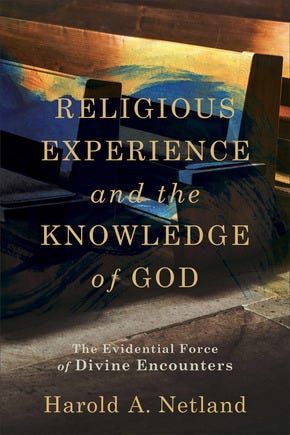Western thought has long wrestled with the distinction between the transcendent and the immanent. Something is transcendent (from the Latin transcendere, meaning “to climb over,” “climb beyond,” or “surmount”) if it exists or operates beyond the universe or beyond our experience. Something is immanent (from the Latin immanens, meaning “indwelling” or “inherent”) if it exists or operates within the universe or within our experience.
For most of its history, and with a vengeance since Immanuel Kant, Western thought has considered the transcendent to be mysterious, unknowable, absolutely “other,” whereas the immanent is accessible, known, and virtually indistinguishable from the rest of our experience. These concepts yield either a god who, if transcendent, is so other to us that we can have precious little idea what he/ she/ it/ them is like or a god who, if immanent, dissolves into our everyday lives and becomes indistinguishable from anything and everything else. Neither deity is likely to bother us, but neither can satisfy us either. They are also incompatible. Transcendence and immanence have been cleaved apart on the butcher’s block, packaged and sold separately as the distinct cuts of the ineffable wholly other and the intimate god in all things.
The Bible does not understand transcendence and immanence in this way, nor does it butcher them apart in this way. The Bible does certainly have a category for God being unknowable in some respects (e.g., Isa 55:8–9), but the main reason for God’s transcendence or exaltation is not his metaphysical otherness but his blazing holiness. As Herman Bavinck says, God is “not removed by a spatial transcendence from his creatures.” He is removed, as the architecture and ceremonies of Israel’s temple eloquently testified, by his uncompromising purity.
Similarly, a biblical understanding of God’s immanence does not assert that he is the same as us, just one more element of our experience, but that he is intimately involved with his world and rules over it sovereignly as the one in whom “we live and move and have our being” (Acts 17:28), who knows our needs before we ask him (Matt 6:8), and who does not forget even a sparrow or one hair on our heads (Luke 12:6–7). Because God remains transcendent, his immanence is an immanence of involvement with the world, not of identity as the world. In short, God is simultaneously “over all and through all and in all” (Eph 4:6).
For the unbiblical view, if God is transcendent, then we cannot say anything about him. For the biblical view, if God is transcendent, then we cannot approach him. For the unbiblical view, if God is immanent, then we cannot ultimately distinguish him from the stuff of creation. For the biblical view, if God is immanent, then we cannot escape his care and love. Furthermore, in the biblical God, transcendence and immanence are not opposites but complementary aspects of the divine nature and character. As Dietrich Bonhoeffer says, “God is the beyond in the midst of our lives.”
— Christopher Watkin is senior lecturer in French studies at Monash University in Melbourne, Australia. He is a scholar with an international reputation in the area of modern and contemporary European thought, atheism, and the relationship between the Bible and philosophy. His published work runs the spectrum from academic monographs on contemporary philosophy to books written for general readers, both Christian and secular, and include Difficult Atheism, From Plato to Postmodernism, Great Thinkers: Jacques Derrida, and others.
---
Taken from Christopher Watkin, Biblical Critical Theory: How the Bible's Unfolding Story Makes Sense of Modern Life and Culture (Zondervan Academic, 2022).
“A brilliant and unique book . . . It is the most biblical, up-to-date, and comprehensive analysis of contemporary Western culture that I know of.”
—Joshua Chatraw, Center for Public Christianity
“This is a magnificent achievement. It is a must-read . . . Here is a total defense and commendation of Christianity like no other. Buy it. Read it. Ponder it. Pass it on.”
—John Dickson, Jean Kvamme Distinguished Professor of Biblical Evangelism and Distinguished Scholar in Public Christianity, Wheaton College
Find Biblical Critical Theory at Amazon, Zondervan, and other major booksellers.
Wandering Toward God
Finding Faith amid Doubts and Big Questions
Is it wrong to doubt? Many Christians assume that doubt is faith’s opposite and that wandering among the hard questions of faith will lead us further and further away from God. True believers, the assumption goes, never waver in their confidence in the fundamental truths of the Christian faith.
Professor and philosopher Travis Dickinson disagrees. Instead, he says, our doubts and hard questions about the faith are actually an important way we can express our commitment and love to God. Doubt isn’t our destination but it’s an important step on the way. It’s possible to wander toward God as we ask our questions honestly, in faith and trust. As we do, we'll discover the truth, goodness, and beauty of God waiting for us.
“For a long time, we have needed an informed, fresh new guide in navigating through stormy waters of doubt. Careful to distinguish doubt from unbelief and offering an extremely helpful definition of faith (ventured trust), Dickinson’s book has it all. It begins with chapters that clarify doubt, faith, and related notions, along with locating the place of doubt in the process of spiritual growth. It moves on to discuss strategies for dealing with doubt, and it provides accessible answers to specific topics often involved in doubt. A truly wonderful book.”
— J. P. Moreland, Distinguished Professor of philosophy at Talbot School of Theology, Biola University, and author of A Simple Guide to Experience Miracles
See our Worldview Bulletin excerpt from Wandering Toward God here.
Find Wandering Toward God: Finding Faith amid Doubts and Big Questions at Amazon, InterVarsity Press, and other major booksellers.
Religious Experience and the Knowledge of God
The Evidential Force of Divine Encounters
For many Christians, personal experiences of God provide an important ground or justification for accepting the truth of the gospel. But we are sometimes mistaken about our experiences, and followers of other religions also provide impressive testimonies to support their religious beliefs.
Religious Experience and the Knowledge of God offers an introduction to the complex topic of religious experience and its viability as support for Christian belief, lending credibility to the Christian claim that experiences support our beliefs and actions. Harold Netland explores from a philosophical and theological perspective the viability of divine encounters as support for belief in God, arguing that some religious experiences can be accepted as genuine experiences of God and can provide evidence for Christian beliefs. The book also draws out the implications of religious experience for Christian witness, missiology, and apologetics in today’s globalizing and religiously diverse world.
“In Religious Experience and the Knowledge of God, Netland provides a thorough and illuminating account of how religious experience can function as an important testimony for God. His reasoning is careful, and he deals thoughtfully with various objections along the way, alert not to overstate the degree of certainty afforded by experience or to isolate religious experience from other sources of the knowledge of God. The book is conversant with the best of recent philosophical literature while also including important historic testimonies like those of Jonathan Edwards and John Wesley. This is a robust, balanced, and compelling treatment of an important topic.”
— Gavin Ortlund, author of Why God Makes Sense in a World That Doesn't
See our interview with Harold Netland on religious experience here.
Find Religious Experience and the Knowledge of God at Amazon, Baker, and other major booksellers.
*The posts above are sponsored.
Subscribe to or Support The Worldview Bulletin
Your support makes The Worldview Bulletin possible! We couldn’t do this without the support of you, our readers. We would be grateful for your help in any of the following ways:
Subscribe to our monthly newsletter and receive exclusive content from our team of world-class scholars and access to our full archive of scores of articles that provide a master class in Christian apologetics. The Worldview Bulletin will inform, equip, and inspire you! You can also give a gift subscription to a family member or friend who would benefit, or subscribe a group of three or more and save 20%.
Make a one-time or recurring donation.
Become a Patron and receive signed books from our team members.
“The Worldview Bulletin shines a brilliant light of truth in a darkening world. These authors, who are experts in their field, consistently provide logical, rational, moral and most importantly biblical answers, in response to the deceitful narratives we are bombarded with daily. I have found it a great source of enlightenment, comfort, and inspiration.”
— B. Shadbolt, Subscriber, New South Wales, Australia
“The Worldview Bulletin is a must-have resource for everyone who’s committed to spreading and defending the faith. It’s timely, always relevant, frequently eye-opening, and it never fails to encourage, inspire, and equip.”
— Lee Strobel, New York Times bestselling author of more than forty books and founding director of the Lee Strobel Center for Evangelism and Applied Apologetics
Advertise in The Worldview Bulletin
Do you have a book, course, conference, or product you’d like to promote to 5,350 Worldview Bulletin readers? Click here to learn how. We’re currently booking for December and January.






I thought you would discuss one of the most salient verses on God's transcendence and immanence, Isaiah 57:15.